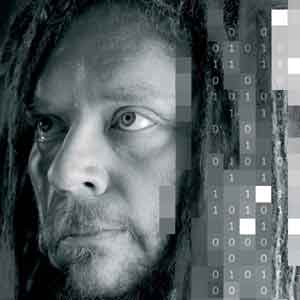
The Immortal Life of Henrietta Lacks by Rebecca Skloot (Macmillan)
In 1951 a young, poor black woman, Henrietta Lacks, mother of five children, died of an aggressive cervical cancer in the “colored” ward of the Johns Hopkins Hospital, Baltimore. Some of her cells were harvested, a routine matter, for tissue culture research. Her malignant cells were labelled HeLa, from her first and last names, and became the first immortal human cells, able to survive and continue to multiply. Henrietta had been a slight woman, only a little over five feet tall, but it is estimated that if all the HeLa cells ever grown could be placed on the scales they would weigh more than 50 million metric tons. Her cells have been instrumental in treating diseases such as cancer, herpes, haemophilia and Parkinson’s. They have been used to study everything from human longevity to mosquito mating. They were shot into space. They were used in atomic bomb testing. And now they inhabit a Gothic narrative where medical science collides with religious belief and cells become “heavenly bodies, immortal angels”. This book tells us where Henrietta started, but it can’t tell us where she stops.
Henrietta’s family are portrayed as variously exploited, ignored and confused by the perceived “theft” and use of their loved one’s cells, even likening what has happened to rape. If Henrietta lives on in some way – “They said they got my wife and she part alive” – who does she belong to now? Her children cannot afford medical insurance, while their mother’s cells can be bought, mail-order, for $167 a phial. In Britain we are perhaps most familiar with the ethical problems of the removal, storage and use of human tissue through the organ-retention scandal at Liverpool’s Alder Hey Hospital. Now, the revised Human Tissue Act makes consent the most important principle, but the practice of obtaining informed consent from donors was essentially unknown in Baltimore sixty years ago.
This is a fast-paced, filmic tale. Part sentimental Oprah fodder, part serious research, part detective story, it is a peculiarly optimistic hybrid: creative non-fiction. The novelistic elements of the book sit curiously with the historical and scientific, especially the dialogue. The vernacular language – and there is a long, strong tradition in African-American writing of rendering black speech as dialect on the page – can feel uncomfortable because we know the writer is white. It has the air of a ventriloquist’s act. The framing narrative is given in standard speech but it means the line between veracity and fiction is obscured. Consequently, there is a sliding sensation between the two, so that the reader is not always sure where they might be with regard to either.
But perhaps this is my difficulty and not the book’s, and mine is a British response to a very American story that has love, voodoo, con-artists, slavery, Nazis, barbarity, progress, iatrogenic disease and God.
And, just as Henrietta Lacks’s cells are her and are not her, so is this portrait of Henrietta/HeLa. This is the oddest biography, if that’s what it is, I’ve read, but it’s certainly one of the liveliest.

